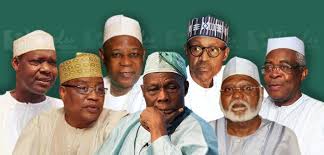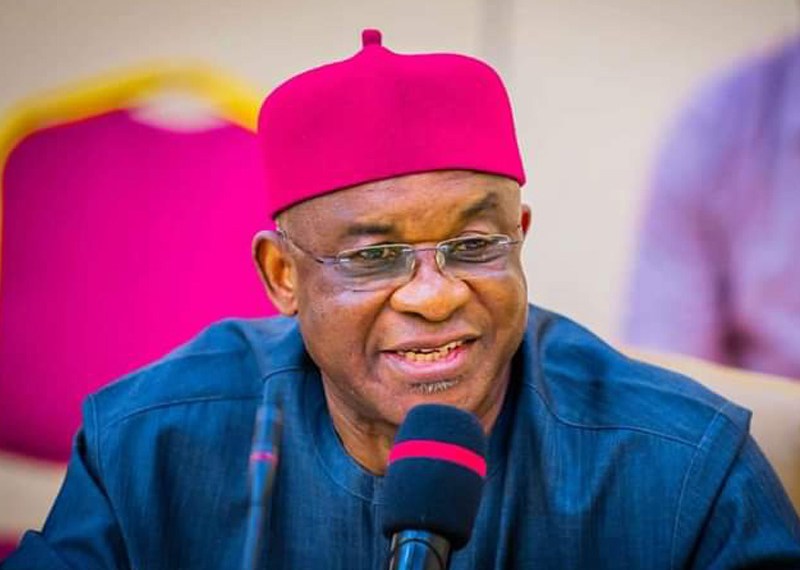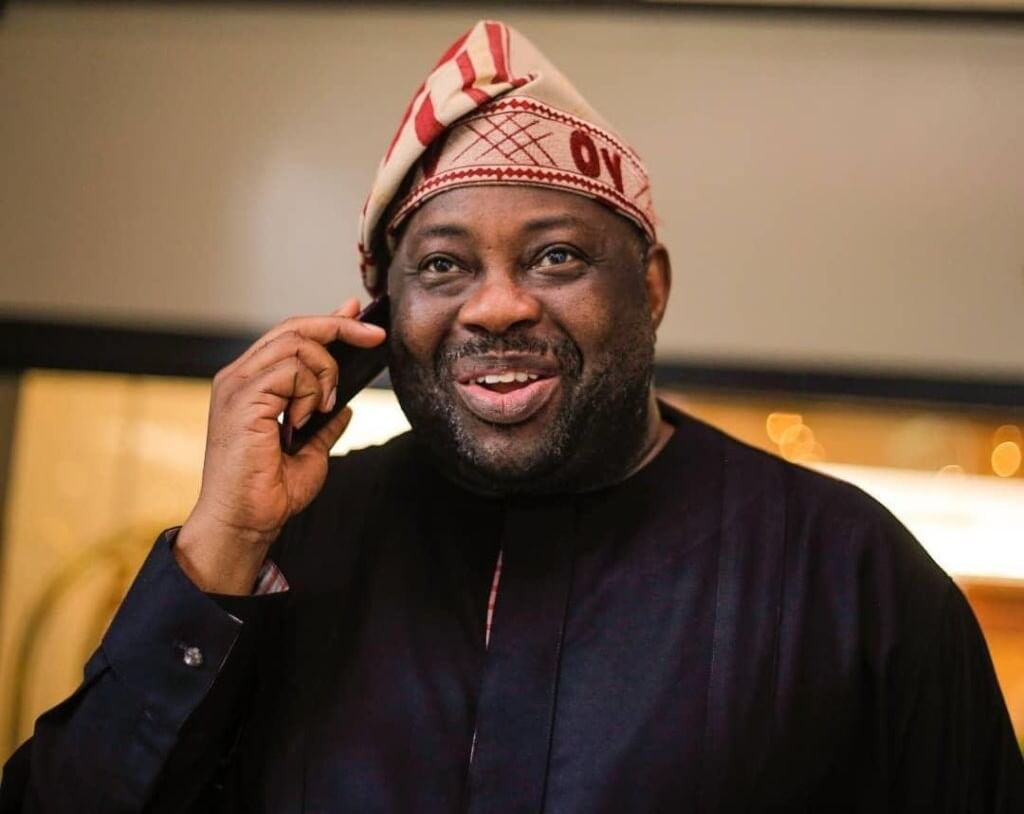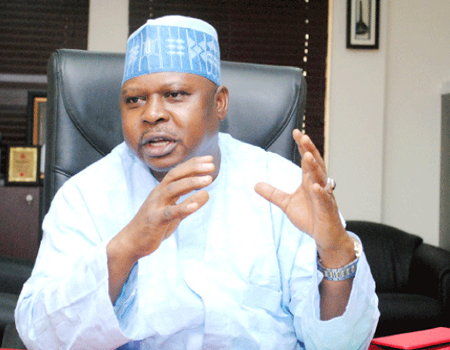Headline
Pendulum: The Battle of the Nigerian Generals
Published
7 years agoon
By
Eric
By Dele Momodu
Related
You may like
Headline
Why Nigerians Must Reject INEC’s Revised Timetable – ADC
Published
3 days agoon
February 28, 2026By
Eric
By Eric Elezuo
The Independent National Electoral Commission (INEC), during the week, released a fresh elections timetable, with major amendments to accommodate the just passed and signed Electoral Act 2026 by the National Assembly and President Bola Tinubu respectively.
Following the repeal of the Electoral Act, 2022 and the enactment of the Electoral Act, 2026, which introduced adjustments to statutory timelines governing pre-election and electoral activities, the Commission has reviewed and realigned the Schedule to ensure full compliance with the new legal framework.
Accordingly, the Commission has resolved as follows:
- Presidential and National Assembly Elections will now hold on Saturday, 16th January 2027 as against the earlier stated February 20, 2027
- Governorship and State Houses of Assembly Elections will now hold on Saturday, 6th February 2027 as against the former date of March 6, 2027
Also in accordance with the approved Schedule of Activities, the electoral bidy noted in the revised timetable that:
Conduct of Party Primaries, including resolution of disputes arising from primaries, will commence on 23rd April 2026 and end on 30th May 2026.
Presidential and National Assembly campaigns will commence on 19th August 2026.
Governorship and State Houses of Assembly campaigns will commence on 9th September 2026.
As provided by law, campaigns shall end 24 hours before Election Day. Political parties are strongly advised to adhere strictly to these timelines. The Commission will enforce compliance with the law.
But in a swift reaction, the opposition coalition, African Democratic Congress (ADC), rejected the revised 2026–2027 general election timetable, describing it as a politically biased schedule designed to favour the re-election agenda of President Bola Tinubu, and calling on all Nigerians to speak up enmasse to reject the revised timetable.
The ADC, in a statement by its National Publicity Secretary, Bolaji Abdullahi, on Friday argued that the new deadlines and compliance requirements under the Electoral Act 2026 create near-impossible hurdles for opposition parties seeking to field candidates.
On February 13, INEC initially scheduled the 2027 Presidential and National Assembly elections for February 20, 2027, while the Governorship and State Houses of Assembly elections were fixed for March 6, 2027.
The timetable, however, faced objections from some Muslim stakeholders who noted that the dates coincided with the 2027 Ramadan period.
Following the concerns, the National Assembly amended Clause 28 of the Electoral Act Amendment Bill, reducing the required election notice period from 360 to 300 days, allowing INEC to adjust the election dates.
Subsequently, INEC released a revised schedule on Thursday, signed by its Chairman, Joash Amupitan, moving the Presidential and National Assembly elections to January 16, 2027, and the Governorship and State Houses of Assembly elections to February 6, 2027.
Reacting, the ADC said the requirement that political parties submit a comprehensive digital membership register by April 2, 2026, effectively bars opposition parties from participating.
The party stated: “The African Democratic Congress rejects the updated 2026–2027 electoral timetable released by the Independent National Electoral Commission. What has been presented as a routine administrative schedule of the upcoming general elections is, in fact, a political instrument carefully structured to narrow democratic space and strengthen the incumbent administration ahead of the 2027 general elections.
“According to the timetable, party primaries are to be conducted between April 23 and May 30, 2026, just 55 to 92 days from today. However, more significant is that, pursuant to Section 77(4) of the Electoral Act 2026, political parties are required to submit their digital membership registers to INEC not later than April 2, 2026.
“That is only about 34 days away. Section 77(7) further provides that any party that fails to submit its membership register within the stipulated time shall not be eligible to field a candidate. These are not routine administrative rules but are deliberately constructed barriers designed to exclude the opposition from participating in the election.”
The party further noted that Section 77(2) of the Electoral Act 2026 requires the digital register of members to contain name, sex, date of birth, address, state, local government, ward, polling unit, National Identification Number (NIN) and photograph in both hard and soft copies, while Section 77(6) prohibits the use of any pre-existing register that does not contain the specified information. It warned that failure to meet these requirements would lead to disqualification.
The ADC questioned the fairness of the digital membership requirement, noting that the ruling All Progressives Congress began its registration process in February 2025, long before the requirement became mandatory.
“It is not a product of foresight but insider advantage. They knew what was coming. They therefore had one full year to carry out an exercise that other political parties are expected to complete in one month, during which they must collect, process, collate and transmit large volumes of digital data to INEC under the threat of exclusion. This is practically impossible.
“Democratic competition is based on a level playing field that does not give any contestant an undue advantage. A system where one party exploits incumbency to gain a one-year head start on a requirement that other parties only became aware of when it was nearly too late is a rigged system.”
The ADC said it has joined other opposition parties in rejecting the Electoral Act 2026, adding that the INEC timetable is equally rejected as it appears designed to serve what it described as a self-succession agenda.
“Let it be clear that ADC will not take any action that appears to confer legitimacy on a fraudulent system. We are reviewing our options and will make our position known in the coming days,” the party said.
The party also called on civil society organisations, democratic stakeholders and Nigerians to scrutinise the timetable and demand fairness, stressing that democracy cannot survive when electoral rules are structured to produce predetermined outcomes.
The party has consistently accused the Tinubu-led All Progressives Congress (APC) of scheming to silence the opposition as the 2027 General Elections draw closer, citing his manipulation of state governors and Assembly members from jumping ship, and settling with the ruling party.
Presently, the president’s party has a total of 31 out of 36 states governors, more than majority of the national and states Houses of Assembly.
A frontline publisher and chieftain of the ADC, Chief Dele Momodu, has warned that Tinubu is gradually transforming into full-blown dictatorship, stressing that his second term in office would turn state governors into ‘total slaves’.
Related
Headline
Second Term for Tinubu Will Turn Governors into Total Slaves, Dele Momodu Warns
Published
4 days agoon
February 28, 2026By
Eric
Chairman, Ovation Media Group, and former presidential aspirant, Aare Dele Momodu, has expressed strong concern over what he described as growing political support for President Bola Ahmed Tinubu among state governors across the country.
The media entrepreneur cautioned that allowing Tinubu to secure a second term in 2027 could, in his view, lead to excessive concentration of power. He particularly criticized what he described as a growing wave of opposition figures aligning with the ruling All Progressives Congress> (APC).
Momodu referenced reports of opposition governors, including Ahmadu Umaru Fintiri, allegedly moving closer to the ruling party, describing the development as politically troubling.
According to him, some governors are allegedly competing to demonstrate loyalty to the president ahead of future elections.
“The governors are fighting to ensure Tinubu wins a second term, fighting to be the biggest thug for him. If a man in his first term can capture the bodies and souls of Nigerians this way, imagine what he would do with a second term. It will be a full-blown dictatorship, and the governors will regret it as they become total slaves to him,” Momodu said.
He concluded by urging Nigerians to remain vigilant and actively protect democratic institutions, warning that unchecked consolidation of political power could threaten the nation’s democracy and future stability.
Gistmania
Related
Headline
Court Validates PDP 2025 Convention in Ibadan, Affirms Turaki-led NWC
Published
5 days agoon
February 27, 2026By
Eric
The Oyo State High Court sitting in Ibadan has affirmed the validity of the 2025 Elective Convention of the Peoples’ Democratic Party (PDP), which produced Dr. Kabiru Turaki as the substantive National Chairman of the party.
Delivering judgment on Friday, Justice Ladiran Akintola upheld the convention in its entirety, ruling that it was conducted in full compliance with the relevant constitutional and statutory provisions governing party elections in Nigeria.
The decision marked a significant legal victory for the party’s leadership and brought clarity to the dispute surrounding the convention’s legitimacy.
The ruling followed an amended originating summons filed by Misibau Adetunmbi (SAN) on behalf of the claimant, Folahan Malomo Adelabi, in Suit No. I/1336/2025.
In a comprehensive judgment, the court granted all 13 reliefs sought by the claimant, effectively endorsing the processes and outcomes of the Ibadan convention.
Justice Akintola held that the convention, organised by the recognised leadership of the party, satisfied all laid-down legal requirements as stipulated in the 1999 Constitution of the Federal Republic of Nigeria, the Electoral Act 2022 (as amended), and the relevant provisions of the Electoral Act 2026.
The court found no breach of due process or statutory non-compliance in the conduct of the exercise.
In the same proceedings, the court dismissed the Motion on Notice seeking a stay of proceedings and suspension of the ruling, filed by Sunday Ibrahim (SAN) on behalf of Austin Nwachukwu and two others. The applications were described as lacking merit.
Earlier in the proceedings, the court had also rejected a bid by Ibrahim to have his clients joined in the suit.
Justice Akintola ruled at the time that the joinder application was unsubstantiated and consequently dismissed it.
Related



Tinubu Nominates Oyedele As Minister of State for Finance, Moves Anite-Uzoka to Budget Ministry

Defection: Atiku’s Son, Adamu, Resigns As Adamawa Commissioner

Senate Rescinds Resolution Seeking Sack of Magaji As CAC Registrar-General

Israel Declares Hezbollah Leader Marked Target

DSS Nabs Man over Assassination Attempt on Peter Obi

NELFund Extends Deadline for Student Loan Applications Nationwide

Saudi Arabia Shuts Down One of World’s Largest Oil Refinery after Iran’s Drone Strike

Prof Jide Owoeye: When a Distinguished Academic Turns 70

Many Killled, Houses Torched As Terrorists Unleash Deadly Attacks on Adamawa Communities

The Oracle: Entertainment is the Next Hope for Nigeria After Oil (Pt. 2)

Fubara Appoints New SSG, Chief of Staff

Iran’s Supreme Leader Khamenei Cut Off from Contact, Fate Unknown

Opposition Parties Reject 2026 Electoral Act, Demand Fresh Amendment

Beyond the Vision: The Alchemy of Turning Ideas into Execution
Trending
-

 Boss Of The Week3 days ago
Boss Of The Week3 days agoProf Jide Owoeye: When a Distinguished Academic Turns 70
-

 Featured6 days ago
Featured6 days agoMany Killled, Houses Torched As Terrorists Unleash Deadly Attacks on Adamawa Communities
-

 The Oracle5 days ago
The Oracle5 days agoThe Oracle: Entertainment is the Next Hope for Nigeria After Oil (Pt. 2)
-

 News6 days ago
News6 days agoFubara Appoints New SSG, Chief of Staff
-

 Middle East4 days ago
Middle East4 days agoIran’s Supreme Leader Khamenei Cut Off from Contact, Fate Unknown
-

 Headline5 days ago
Headline5 days agoOpposition Parties Reject 2026 Electoral Act, Demand Fresh Amendment
-

 Opinion3 days ago
Opinion3 days agoBeyond the Vision: The Alchemy of Turning Ideas into Execution
-

 Islam5 days ago
Islam5 days agoFriday Sermon: Reflections on Ramadan 2: The Taraweeh Conundrum


